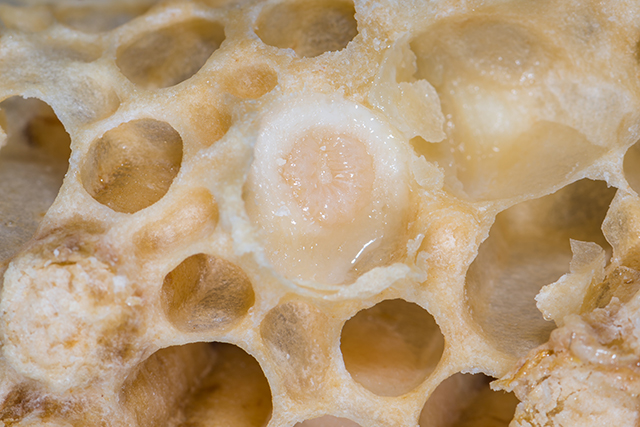The health benefits of vinegar: Real or imagined?
07/19/2024 / By News Editors

Anecdotes about the health benefits of vinegar proliferate wildly, as do claims by skeptics that it is nothing more than placebo medicine. So, what does the scientific evidence actually say?
(Article republished from GreenMedInfo.com)
According to a recent review published in MedGenMed titled, “Vinegar: Medicinal Uses & Antiglycemic Effect,” which set out to examine the scientific evidence for the medicinal uses of vinegar, folklore concerning vinegar’s discovery stretch back to the very beginnings of recorded history:
Legend states that a courtier in Babylonia (c. 5000 BC) “discovered” wine, formed from unattended grape juice, leading to the eventual discovery of vinegar and its use as a food preservative.
This fascinating review describes the history of vinegar to be “as colorful as it is practical,” stating that, “Hippocrates (c. 420 BC) used vinegar medicinally to manage wounds and Cleopatra (c. 50 BC) dissolved precious pearls in vinegar and offered her love potion to Anthony. Sung Tse, the 10th century creator of forensic medicine, advocated hand washing with sulfur and vinegar to avoid infection during autopsies.” Interestingly, vinegar “teas” were used by US medical practitioners of the late 18th century for ailments ranging from dropsy to poison ivy, croup, and stomachache,[1] as this was before the production and marketing of hypoglycemic patented medicines.
What Is Vinegar?
The word vinegar comes from the French vin aigre, meaning “sour wine,” and is a byproduct of fermenting a source of carbohydrates, grapes, dates, apples, berries, etc. The chemistry behind the process is described as follows:
Initially, yeasts ferment the natural food sugars to alcohol. Next, acetic acid bacteria (Acetobacter) convert the alcohol to acetic acid. Commercial vinegar is produced by either fast or slow fermentation processes. For the quick methods, the liquid is oxygenated by agitation and the bacteria culture is submerged permitting rapid fermentation. The slow methods are generally used for the production of the traditional wine vinegars, and the culture of acetic acid bacteria grows on the surface of the liquid and fermentation proceeds slowly over the course of weeks or months. The longer fermentation period allows for the accumulation of a nontoxic slime composed of yeast and acetic acid bacteria, known as the mother of vinegar.
It is the acetic acid which is responsible for the tart, biting, pungent flavors of vinegar, but the FDA states that acetic acid is not vinegar and should not be added to food products customarily containing vinegar products.[2] Vinegar actually contains a wide range of food components,[3] [4] including:
- Vitamins
- Minerals
- Amino Acids
- Polyphenols
- Nonvolatile organic acids (e.g. citric, lactic, malic)
In this sense, vinegar is a complex food, irreducible to a singular compound it contains. This also may explain why it has such a broad range of potential medicinal properties. What follows is a list of health benefits associated with vinegar, as disclosed in the aforementioned review.
The Evidence-Based Health Benefits of Vinegar
- Anti-Infective Properties: It was Hippocrates (460-377 BC), father of modern medicine, who first recommended using vinegar for treating sores and ulcerations. There is some modern research indicating that it does work as a disinfectant for household applications and as an antimicrobial for wounds (though it is not yet recommended by medical experts). One 1996 study on non-conventional topical treatments for wound care found it to inhibit Escherichia coli and group D Enterococcus, with lower but significant inhibitory activity on the growth of Staphylococcus aureus and Pseudomonas aeruginosa bacteria.
- Cardiovascular Protection: While there is no know published clinical research in humans showing that vinegar reduces blood pressure, animal research in spontaneously hypertensive rats does show it has a blood pressure lowering property.[5] This is believed to be due to vinegar’s ability to inhibit the renin-angiotensin system. [6] A proposed mechanism is that dietary acetic acid promotes calcium absorption and thereby downregulates the renin-angiotensin system. [7] Human research does bear testimony to the ability of acetate to increase the absorption of calcium in the distal colon,[8] lending plausibility to the view that vinegar might have similar calcium-mediated blood pressure lowering effects. Additional research on the consumption of oil-and-vinegar dressing indicates that vinegar may lower other risk factors for cardiovascular disease.[9]
- Anti-Cancer: There is a significant body of cell and animal research available today indicating that vinegar has anti-tumor properties.[10] [11] [12] [13] [14] [15] Although the anti-tumor factors have not been identified, acetic acid appears to be a major player, as it forms acetate ions in the stomach, which may have direct anti-tumor effects. As stated before, acetic acid alone cannot account for the health benefits of vinegar as a whole, and this is most evident by the fact that vinegar from various plant sources contain a wide range of polyphenols, whose antioxidant and anti-cancer properties are well characterized.
- Blood Glucose Control: The first report of the blood-sugar lowering properties of vinegar were reported in 1988. Researchers found in rats, the blood glucose response to a 10% corn starch load was significantly reduced when co-administered with a 2% acetic acid solution.[16] Since then, a number of human studies have been performed indicating that vinegar will reduce both insulin response and blood sugar elevations following a meal.[17] [18] [19] [20] [21] [22] [23] [24] One additional benefit of vinegar on blood sugar concerns is its ability to suppress appetite and improve satiety.[25] The review also points out that, “the lay literature has long proclaimed that vinegar interferes with starch digestion and should be avoided at meal times, indicating that it may lower the glycemic response to carbohydrates.[26]
Vinegar, without doubt, has far more health benefits than listed here. We should remind ourselves regularly that a lack of scientific proof does not constitute evidence that something does not exist, or is not real. Direct experience, of course, is at the foundation of all scientific inquiry and clinical intuition. Owing to the status of vinegar as a food, and its extraordinarily high margin of safety, we can only hope that folks will not be dissuaded from using it as a tonic, or ‘natural remedy’ if that is what they freely choose.
Read more at: GreenMedInfo.com
Submit a correction >>
Tagged Under:
alternative medicine, anticancer, blood sugar, diabetes cure, food cures, food is medicine, food science, functional food, health science, heart disease, heart health, infections, natural antibiotics, natural cures, natural health, natural medicine, nutrients, nutrition, phytonutrients, prevention, remedies, Xpost
This article may contain statements that reflect the opinion of the author
RECENT NEWS & ARTICLES
consumerwellness.info is a fact-based public education website published by consumerwellness.info
All content copyright © 2023 by consumerwellness.info
Contact Us with Tips or Corrections
All trademarks, registered trademarks and servicemarks mentioned on this site are the property of their respective owners.




















